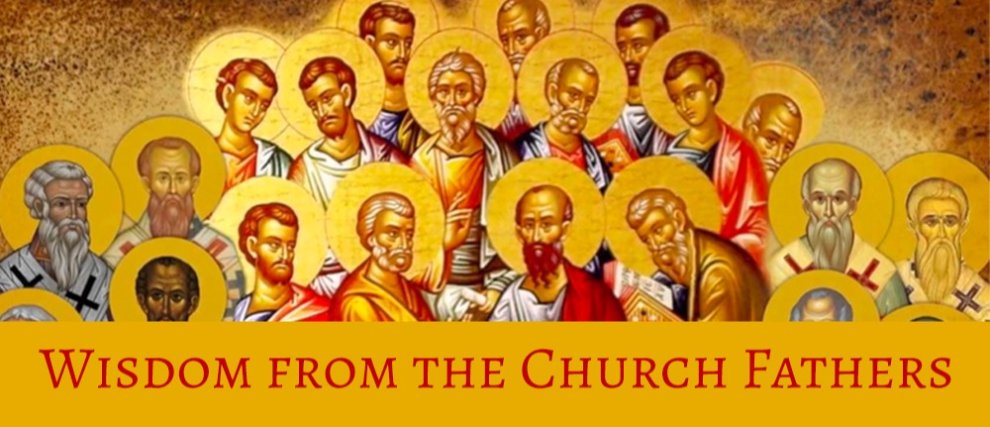The History of The Apostles’ Creed
The Apostles’ Creed, or the Symbol of The Apostles (In Latin ‘Credo’) is a Christian symbol of religious faith. It is prayed by Catholics and Protestants alike, and by Orthodoxs under its longer form: the Nicene Creed (or Niceno-Constantinopolitan Creed). The Apostles’ Creed is a fundament of the beliefs of Christianity. But where does it come from? Who is the author, and how was it created?
The origin of The Apostles’ Creed
Defining Christian Faith
“The Apostles' Creed is so called because it is rightly considered to be a faithful summary of the apostles' faith. It is the ancient baptismal symbol of the Church of Rome. Its great authority arises from this fact: it is "the Creed of the Roman Church, the See of Peter the first of the apostles, to which he brought the common faith" (Catechism of the Catholic Faith)
The Apostolic Creed is a profession of faith that has been passed down to us by the first Apostles. In the early days of Christianity, it was essential to understand and to be able to define the tenets of the Church before building it. What were the doctrines at the heart of this new religion? What were the principles shared among its disciples? And what made Christianity different from other monotheistic religions, such as Judaism?
More than just a prayer, the Apostles’ Creed is the profession of faith of the early Christians. It features the the essential beliefs of Christianity:
The belief in Trinity: God is the Father, the Son, and the Holy Ghost.
The recognition of Jesus as the Son of Man and as the Messiah
The belief in the resurrection of Jesus Christ and in eternal life
The belief that Jesus Christ was fully Man and fully God
The belief in the universal body of Christ, of which every Christian is a member
Apostolic Writings
The Symbol of The Apostles appeared in the early days of Christianism. Inspired by the Holy Spirit, the Apostles wrote their Teachings containing the principles of the religion to be followed by the First Christians. Mention is made of this symbol in the early centuries of the Christian era, notably by St. Ignatius of Antioch (1rst century) and Tertullian (2nd century).
Numerous elements of the Apostles’ Creed can be found in the Pauline and the Petrine epistles to the first Christian communities.
“For I delivered to you as of first importance what I also received, that Christ died for our sins in accordance with the scriptures, that he was buried, that he was raised on the third day in accordance with the scriptures” (1 Corinthians 15: 3-4)
“For if the dead are not raised, then Christ has not been raised. If Christ has not been raised, your faith is futile and you are still in your sins. Then those also who have fallen asleep in Christ have perished” (1 Corinthians 15: 16-18)
“For when he received honor and glory from God the Father and the voice was borne to him by the Majestic Glory, “This is my beloved Son, with whom I am well pleased,” we heard this voice borne from heaven, for we were with him on the holy mountain.” (2 Peter 1:17-18)
“For prophecy never had its origin in the human will, but prophets, though human, spoke from God as they were carried along by the Holy Spirit.” (2 Peter 1:21)
The First Ecumenical Councils
In its early days, this new religion and its Trinitarian doctrine raised a few eyebrows. Some believed that Christianity undermined monotheism, which created the incentive to reaffirm the Mystery of the Holy Trinity: the existence of one God, coeternal within three Persons. This matter was debated during the two Councils taking place in Nicaea in 325 AD and in Constantinople in 381 AD.
The longer and more complete version of the Apostles’ Creed, the Nicene Creed originates from these Ecumenical Councils. It is acknowledged by Western and Eastern Christians, and it is still used by Orthodoxs today.
In this version, two elements in particular are developed further than in The Symbol of the Apostles:
The divine nature of Jesus, who is consubstantial with the Father: many religious groups started to appear, led by Plotinus, Sabellius, Arius, etc. These movements debated on the divine nature of Christ and his connection with God the Father. In the Nicene Symbol, Jesus is clearly presented as the Word: He is “Light from Light”, “true God from true God”, “born of the Father before all ages”, etc.
The Manifestations of The Holy Spirit
Enter The Heart of Christianity with Hozana
The Apostles’ Creed is a prayer for unity: it is prayed by all the Christians. With Hozana, you can join online communities to share a moment of prayer with your Christians brothers and sisters around the world. Hozana offers a wide range of spiritual programs: pray daily for 21 days, and commit yourself to your journey towards Holiness, say a novena to St. Anne for families, meditate on the daily Gospel, and more!

